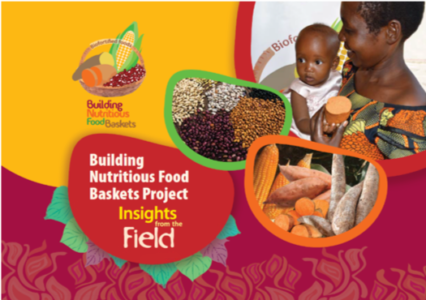 Building Nutritious Food Baskets (BNFB), a three-year (Nov. 2015 to Oct. 2018) project in Nigeria and Tanzania led by the International Potato Center (CIP), strengthened food and nutrition security and incomes by promoting the production and consumption of biofortified crops, which are the results of many years of conventional breeding.
Building Nutritious Food Baskets (BNFB), a three-year (Nov. 2015 to Oct. 2018) project in Nigeria and Tanzania led by the International Potato Center (CIP), strengthened food and nutrition security and incomes by promoting the production and consumption of biofortified crops, which are the results of many years of conventional breeding.
The project, which was funded by the Bill & Melinda Gates Foundation, partnered CIP with the International Center for Tropical Agriculture, the International Maize and Wheat Improvement Center, the International Institute of Tropical Agriculture, HarvestPlus, the Forum for Agricultural Research in Africa, government agencies in Nigeria and Tanzania, and various other national partners. It promoted a multi-crop, ‘food basket’ approach for ending micronutrient malnutrition, or ‘hidden hunger,’ that included biofortified orange-fleshed sweetpotato, vitamin A cassava, vitamin A maize and high iron bean varieties.
Almost a quarter of the people in sub-Saharan Africa suffer hidden hunger, which can result in serious health problems that disproportionately affect women of reproductive age, infants and young children. By catalyzing demand and investment in biofortified crops while strengthening institutional and community capacities, BNFB helped Nigerians and Tanzanians improve their nutritional uptake by consuming those nutritious crops.
To share some of the success stories and insights gained during the project’s implementation, BNFB compiled a booklet that showcases successful partnerships and human-interest stories, outcomes and the emerging impacts of these efforts. While most of the success stories were written and disseminated over the course of the project’s three-year implementation, some were developed at the end to illustrate best practices for scaling biofortified crops.
The booklet can be accessed here.
By Joyce Maru (CIP-SSA) and David Dudenhoefer (CIP)
